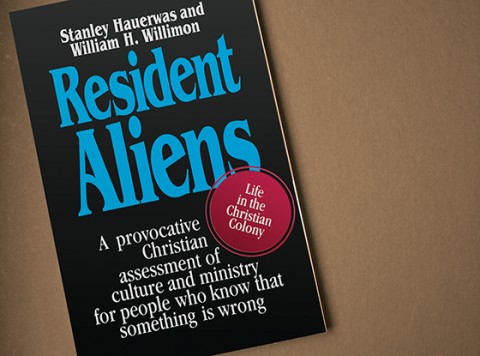State of the colony: Resident Aliens at 25

Twenty-five years ago, Stanley Hauerwas and William H. Willimon sparked a lively debate about church, ministry, and Christian identity with their book Resident Aliens: Life in the Christian Colony. The book called on Christians to think of themselves as "aliens" in American culture who were part of the countercultural ethos of the church and shaped by the biblical witness rather than liberal, capitalist, democratic culture.
Several major themes in Resident Aliens—the importance of Christian formation in the church; the church as a community set apart from the wider culture; and the end of the "Constantinian" alliance between church on the one hand and state and culture on the other—have since become part of the mainstream theological conversation.
Have these themes and arguments been helpful to theologians, pastors, and Christian communities? After 25 years of experience and argument, has the church learned anything about what being a "colony of resident aliens" could mean or should mean? Are there important ways of being countercultural that the church has overlooked? Has the focus on creating vibrant ecclesial communities had a favorable impact on the witness of the church or the opposite? What are the challenges to realizing this vision?
We asked several pastors and theologians to offer their perspective. Their responses are listed below.


